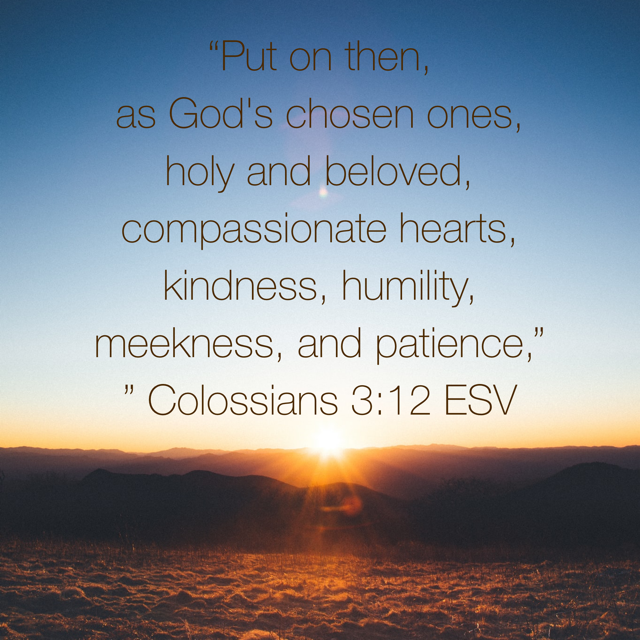If you are here, in the wake of a suicide, to help someone you know and love—thank you. Entering into someone’s deep grief is no easy task. In doing so, you are choosing to help bear another believer’s burden (Galatians 6:2). I pray that you will not be intimidated by the task but will lean on the One whose love and compassion we are called to demonstrate (John 15:9-13; Psalm 103:13; Colossians 3:12).
Many people have asked me how they can help someone they love who has lost a close relative or friend due to suicide. This is always a challenge for me to answer. On the one hand, everyone is different. We each respond to life’s pain from the well-spring of our own circumstances, backgrounds, theologies, and personalities. On the other hand, in many ways, we are all alike.
In her book, Roses in December, Marilyn Willett Heavilin writes:
“Many needs of the bereaved, regardless of how a loved one died, are the same as those of others who have experienced the death of a loved one by any other cause. We need someone to listen to us, cry with us, and give us room to grieve.
- In addition, we need to be extra sensitive that we do not add guilt to the family.
- We need to make sure the family feels totally accepted and in no way stigmatized because of how their loved one died.
- Once a person has died, the cause of death should be of little or no importance to us as Christians.
- Healing from a loss by death takes much longer than any of us expect, and when death is by suicide, AIDS, or any other violent means, healing may take even longer. We need to give the bereaved all of the time they need. Remember, grief takes as long as it takes.”1
How greatly I appreciate one pastor and his wife driving hours to stand in line on the night of my husband’s funeral visitation. They came to give me one message. His father had committed suicide, and the family had never seen it coming. They felt my pain—I still remember the compassion in his eyes. Later, when speculations began buzzing on a pastors’ internet forum, this man’s brother immediately put an end to the conversation. “We will not continue this discussion but will pray for the family,” he conveyed, lovingly but firmly.
Due to their own experience, these brothers were not afraid to step in and show compassion. I pray that the following insights, taken from my experience and many others, will give you the confidence to do the same.

Be there.
If you are on close enough terms to be at their home before the death, then you are probably close enough to go to their home after the death. If not, call or write. Talk to them at church or when you see them around. Whatever you do, don’t avoid them or ignore them.
Sometimes it isn’t possible to actually be with them. My friend Marie sent me several packages of loose tea—from across the country. I love tea. I don’t know how she knew that, but she had obviously done a little research, and suddenly, I had a fairly substantial box of at least 10 different teas. It was love in a box. Thank you, Marie.
Then there was my friend Jerrie, who having stayed after the funeral for as long as she could, eventually had to go home. One benefit was that her time zone was different than mine. So when, once again, I hadn’t slept all night, I knew I could call her, for while it was too early to call someone in my time zone, I knew she would be awake. As I was curled up crying on my bathroom floor, she began reading Psalms to me. I don’t have any idea how long she read—I just know I woke up several hours later with a silent phone beside me. God bless you, my friend.
Be mindful of the sensitivity of the privacy of the circumstances.
Please don’t ask for details. Doing so can take survivors to places they are still sorting through. It is simply too easy for such details—details that are personal, painful, and private to be used later (whether intentionally or not) as gossip.
It is an unfortunate truth but, in today’s world, the reminder is necessary that respecting someone’s privacy includes not talking about it on the internet. Not even for “prayer.”
One of the hardest questions for a grieving person to be asked is, “Were there any signs that this was going to happen?” Rest assured that, if the family knew the person was thinking about suicide, they would have done whatever they could have to stop it. Hindsight is always 20/20. Suggesting that there were missed indications beforehand implies to those left behind that somehow, they failed to see the signs and do something about it.
Asking how a loved one carried out their suicide is never helpful. It will appear cavalier, insensitive, and sensation seeking. They may need to talk about this, but it will be with a tight circle of loved ones and/or their pastor/counselor. It simply isn’t appropriate or necessary information to ask the grieving family.
Look into their heart.
Assume that they do want to heal and that, whether a believer or unbeliever, they are looking to the Lord. There may be a time later for deep theological discussions, but that time is not now. Now is a time for God’s love to shine through.
Most likely, their thinking processes are clouded. Let them talk and repeat themselves—as many times as they need to. Don’t force them to be cheery or “rejoice in the day the Lord has made.”
We’ve all heard of baby-brain and chemo-brain. Well, there is also such a thing as grief-brain.2 Dr. Jannel Phillips, a neuropsychologist at the Henry Ford Medical Center in Detroit, Michigan, describes it this way, “Several regions of the brain play a role in emotion, including areas within the limbic system and pre-frontal cortex. These involve emotional regulation, memory, multi-tasking, organization and learning. When you’re grieving, a flood of neurochemicals and hormones dance around in your head. There can be a disruption in hormones that results in specific symptoms, such as disturbed sleep, loss of appetite, fatigue and anxiety.”
Many others in the field of neurology have studied this and spoken about it, including Dr. Lisa Shulman, who said, “It wasn’t until I experienced my husband’s death that I learned how disorienting, harrowing and perilous it is to lose people close to us. To lose something that is simply basic to who we are and how we make sense of our lives.”3
If someone has a broken leg, the cast shows that they are healing. When someone has a broken heart, there aren’t necessarily outward signs to show their deep wounds. Give them space to say things that may not always make sense, to fumble as they try to figure out how to navigate their “new normal” while feeling completely shattered inside.
Give honor to the deceased by focusing on the blessings and positive things of their life. Let those left behind talk about the one who died and remember good memories of them. In light of the circumstances, this may seem hypocritical or even impossible and so, I offer two observations.
- One terrible choice does not wipe-out all of the good that one has done with their life. Yes, it will forever tinge it with sadness, but it does not erase it. Consider Moses, who, after sacrificing so much to lead a stubborn and willful people, disobeyed God and forfeited his right to enter the Promised Land. And yet, there he was with Jesus and Elijah on the Mount of Transfiguration (Deuteronomy 34; Matthew 17), and is still known as the meekest man to walk the earth (Numbers 12:3).
- The truth of the situation will be impossible to ignore but it doesn’t need to be the sole focus. For those left behind, God’s grace and the gift of time has the power and promise to balance both the death and the life of the one who committed suicide.
Furthermore, because there is already a silent stigma attached to suicide that inadvertently brings shame, acting like the person did not exist will only delay healing.
A few weeks after my husband’s death, I remember talking with a good friend. In the course of our conversation, I mentioned my husband’s name and something he had said (it was still good advice). She looked at me and replied, “I am surprised that you talk about him.” After 31 years of marriage, it was well-nigh impossible not to. And yet, I quickly sensed that he was not to be mentioned anymore, and, once again, stifled myself.
With the silence, the shame Jesus had already carried to the cross, the pain He never intended for me to bear, grew.
Rather than just saying, “Let me know if I can help you,” look for practical ways to help.
I was cleaning out some of my files the other day and came across a story that I had saved from an old Guideposts magazine, published in 1981. It told the true story of a woman who had just found out about the deaths of 5 loved ones in a horrific car accident. In shock, she and her husband began trying to make flight arrangements for themselves and their children and attempting to get their belongings together. It was made more difficult by the fact that, in preparation for an upcoming move, all their things were in boxes.
Then, a knock came at the door. The neighbor on the other side simply said, “I’ve come to clean your shoes.” As the wife gathered all of their shoes, the neighbor quietly found the necessary supplies and sat down on the floor. That was all. The comfort of his presence and the intentionality of his job helped them focus on what needed to be done.
Some people eat when they are stressed. I am not one of those people. As the months wore on, my weight dropped off.
One night, as I sat alone in the stillness of my house, the doorbell echoed. There, in the darkness, stood a former student with a big cardboard box in his arms. Now married and with several children, he explained how while his wife was making their family several casseroles that day, she thought of me. In that box were at least 10 small aluminum foil containers with delicious meals. All I had to do was heat them and eat. They lasted for weeks! Some time later, some sweet friends from a church a few hours away sent me more. I have never forgotten each kindness. It was definitely more effective than the woman who walked up to me at church at brusquely informed me that I needed to eat.
Shoveling snow was going to be a challenge for me that winter, but as things turned out, I didn’t need to worry about it—two of my young male students came over and made sure my drive and walks were always shoveled. It was an even greater blessing, because, at the time, I was in a cast for 10 weeks due to a broken wrist. My heart still smiles in gratitude!
Help them avoid complete isolation.
People in deep grief are generally overwhelmed by large crowds and do appreciate and need some time alone, but too much isolation is neither healthy nor wise. How I appreciate those who came at different times and whisked me away for a drive and a quiet meal. Or the families who had me over. I didn’t want to go, and I felt so out of place on my own, and yet, I also felt loved.
Even a phone call, voice mail, or text will remind them that they are not alone and forgotten.
Be careful not to add “pressure.”
You would probably never do this, but be cautious about admonishing someone to do something or keep going to be an “example.” You know that broken wrist? I believe that it was a gift from God to help me get away from feeling on display at the piano on the platform every Sunday. Early on, I had been told that the church needed to see me up front being faithful. It was a pressure that I had lived with most of my life and attempted to continue accommodating but was so detrimental to my healing.
Four months after her father’s death, one of my daughters was told that it was time for her to “forget those things which are behind.” Four months after her father’s death—by suicide. It was not the first time someone had used scripture in an insensitive way.
These things are covered with grace now but hurt deeply at the time. Leave your expectations, of where people should be, with God. There are no rules for how to grieve perfectly.
Along this same line—
Be patient with their grief.
Avoid putting timetables on someone’s pain and assuring them that “it will be better after the first year.” I know, from experience, that that adage is true in deaths by natural causes. However, in conversations with those who have lost loved ones due to suicide, none have said that one year even came close to making things better. In fact, while having learned to live with their wounds, they don’t anticipate ever getting over what happened. They aren’t clinging to their grief; they just recognize that, in this life, there will never be any closure with a suicide. Other deaths have closure, suicide hangs open. You learn to live with that gaping hole, but it takes time. So, please be patient.
And, finally—
Pray for them
Though at the end, this may be the most important thing you can do. I am fully aware that I sit here and write this because people prayed for me—and still do. I am forever grateful for all the prayer.
It was a handwritten letter—a rarity in today’s world, and all the way from the Philippines. It landed in my mailbox about 8 months after my husband’s death. It’s story inside still holds me in awe.
Gathering her faithful group of Filipino women together for their weekly prayer time, she asked them to pray for her friend Melissa. She didn’t give them any details—just shared that I was going through a very difficult time. Prayers went up, heads bowed and lips moved. The third woman began to pray. When she said my name, she stopped and went silent. For several minutes the stillness hung in the air. Then, one by one, the ladies began to weep. For me. “I don’t know what you were going through at the moment, Melissa,” my missionary friend, Susan, wrote, “but I can only think that maybe God let us carry some of your load for that little while.”
I don’t know either, but heaven does, and I can’t wait to find out one day.
Maybe your prayers will also carry the load for someone going through this time of terrible grief. So, please pray, and while you are praying—let them know. You will be such a blessing!

Help! Someone I Love Died by Suicide, Bruce Ray, Shepherd Press
Reflections on a Conversation about Grief, Kevin Carson blog post
Kevin Carson, Care after a Suicide, given at the 2019 National Conference of the Association of Certified Biblical Counselors, available at: Association of Certified Biblical Counselors
Notes for the session, Care after a Suicide (ACBC conference), found at: kevincarson.com
1 Heavilin, Marilyn Willett, Roses in December: Comfort for the Grieving Heart. (Eugene, Oregon: Harvest House Publishers, 1987), p. 166.
2 https://www.henryford.com/blog/2018/06/how-coping-with-grief-can-affect-your-brain





Dear Melissa,
After reading this section of your blog I am convinced that you are the epitome of 2nd Corinthians chapter one vs. 4 through 6.
Keep sharing and caring.
Dear Gail, thank you for your kind words. I pray that we both let His grace flow through us for His glory. Sharing and caring with you, Melissa